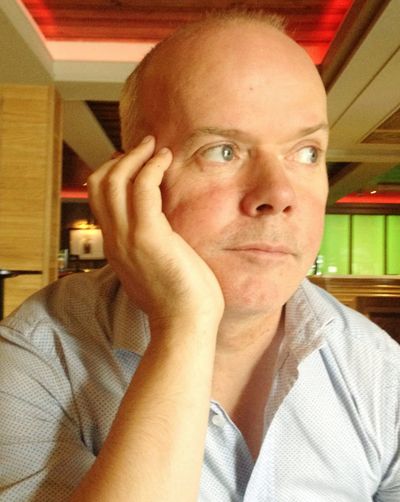
Anthony Neeson began his career in journalism with the Tyrone Times in Dungannon in 1995 before freelancing with Belfast daily and Sunday titles in both news and sport. He joined the Andersonstown News as Sports Editor, before moving across to the News Desk as a reporter, eventually becoming Deputy Editor. Anthony also spent time as Deputy Editor of Daily Ireland and was appointed Editor of the Andersonstown News in 2016. Anthony is also the Ireland correspondent with the Irish Echo in New York.
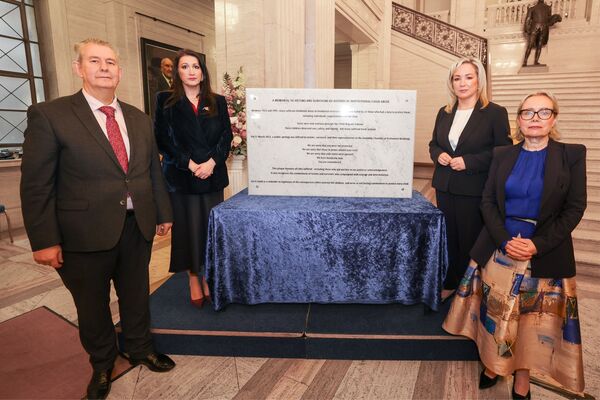
A MEMORIAL plaque has been unveiled at Stormont to honour all victims and survivors of historical institutional abuse.
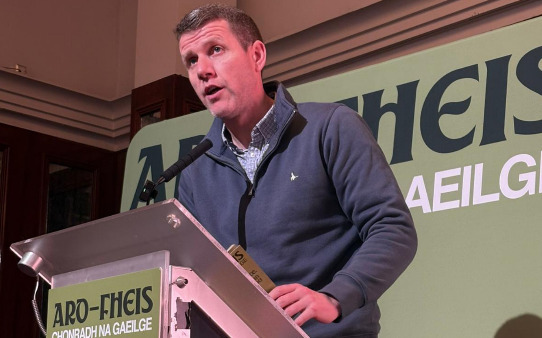
IRISH language advocacy group Conradh na Gaeilge has voted to amend its constitution to “work towards a united Ireland”.
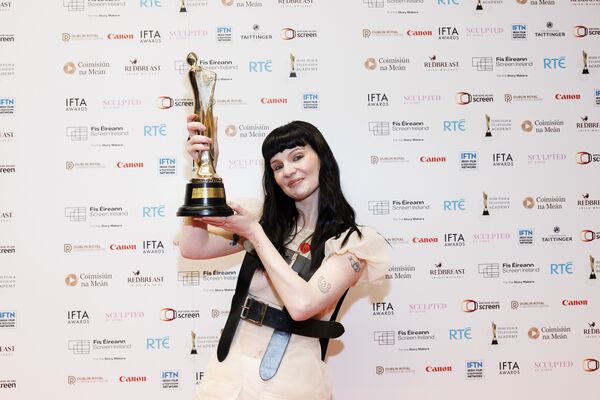
WEST Belfast was at the double at the Irish Film & Television Awards in Dublin last night with Anthony Boyle winning the Lead Actor in a Drama award for his performance in House of Guinness, and Lola Petticrew lifting the Lead Actress in a Drama award for Trespasses.

Business leaders from across West Belfast gathered in the Kennedy Centre office of MP Paul Maskey this morning to support a coffee reception for Marie Curie.
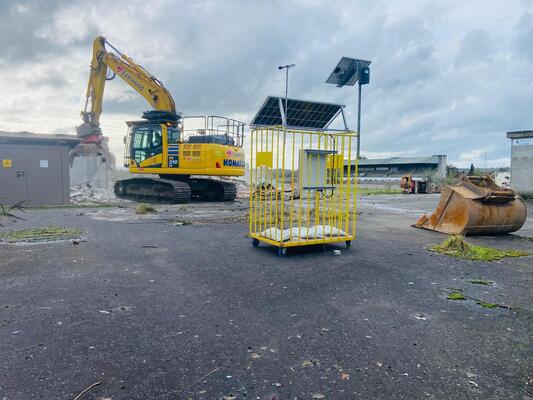
WEST Belfast MLAs have clashed in the Stormont chamber during a debate on future revenue generated from a redeveloped Casement Park.
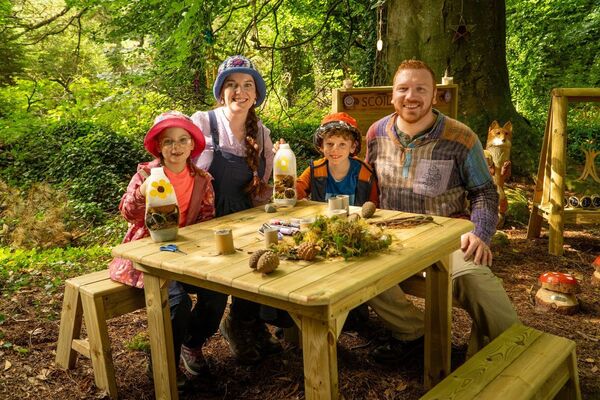
WEST Belfast singer-songwriter Gráinne Holland and her family are back with a new series of the award-winning Scoil Choille (Forest School).
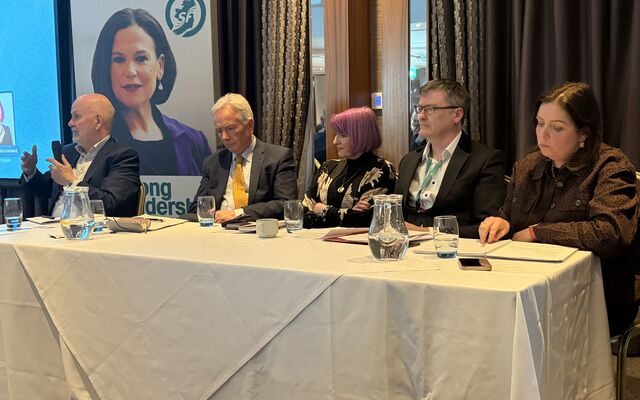
Top medical professionals have stressed the importance of scale in making all-Ireland healthcare viable.
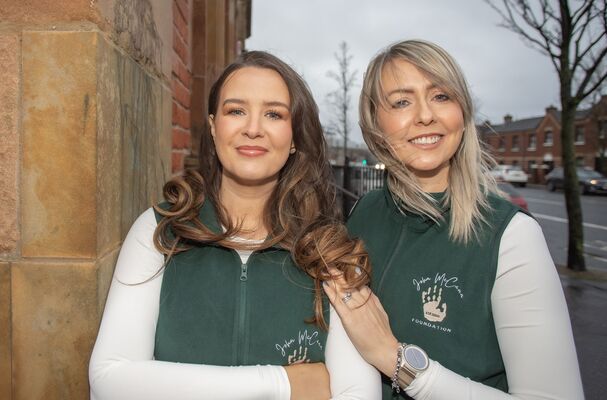
A GALA fundraising evening is set to take place in April in memory of a popular Falls Road musician who passed away just over a year ago.
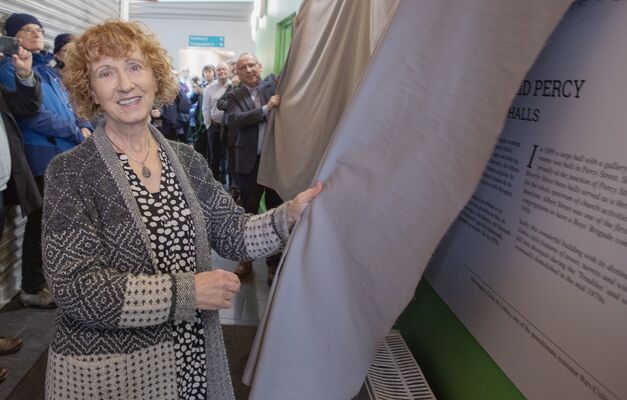
A COMMEMORATIVE plaque and artwork has been unveiled at the Maureen Sheehan Centre in Albert Street to commemorate the site of the old Albert Street Presbyterian Church.
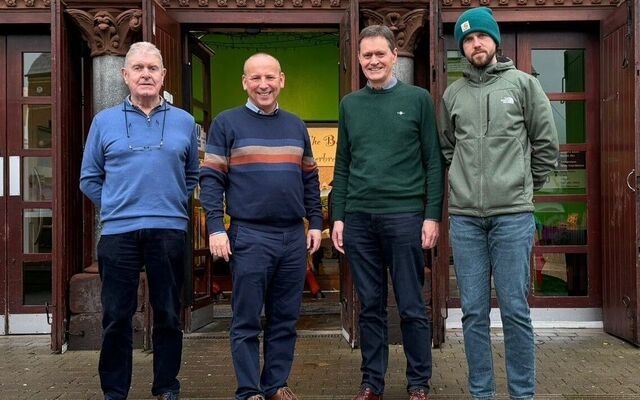
WEEKLY Presbyterian Sunday service is set to return to the Falls Road for the first time in over 40 years. Having begun with a single monthly service at An Chultúrlann back in September 2024, from this Sunday the local congregation who meet at the Irish language cultural centre, will “take things to the next level” with a new weekly service. Up until 1982 the iconic Cultúrlann building on the Falls Road was the home of Broadway Presbyterian Church. Rev David Moore leads An Tionólann at the Cultúrlann. An Tionólann, meaning ‘The Place of Assembly in Irish), is the Presbyterian Church in Ireland’s (PCI) special ministry in the west of the city. Rev Moore says he is excited about the move to regular Sunday worship. “After an absence of many years, PCI began to re-engage with West Belfast in September 2022,” he said. “Since then, we have arranged a number of historical, linguistic, cultural, sporting and spiritual events, like last summer’s ‘Between the Sticks’ with Antrim GAA and Scottish Shinty teams, and have been delighted with the great response from the people of West Belfast, whom we have come to serve.” Mr Moore continued: “Having started monthly services in September 2024, we now have around 40 regular attenders, so we feel that the time has come to take things to the next level and establish a regular pattern of Sunday services. To kick us off, is my colleague, Rev Moore Casement, who will preach this Sunday. Moore has a familiar surname, and is actually a distant relation of the former diplomat and Irish patriot, Sir Roger Casement.” Services starts at 4pm and last just less than an hour, he said. “We follow a simple order of service which includes reading from the Bible and Blessing in Irish, with English translation, singing together as a congregation, which everyone enjoys regardless of how good a singer they are! The heart of our time together is spent listening and thinking about what God says through the Bible and what it means for our lives today.” The minister said that he is treating February as a trial run for what he hopes will become an established weekly service. “Over the course of the month we are looking at some of the “I AM” sayings of Jesus found in John’s gospel, as he tells us who he is in his own words. For example, ‘I am the Resurrection and the Life’ and ‘I am the way the truth and the life’, all of which reveal a different facet of who Jesus is. “Everyone is welcome and if this initial month of Sunday services goes well, we will be following our Lord on his journey to the Cross in the later chapters of John’s gospel during Lent, which will take us up to Easter.” The Rev Moore Casement, the speaker this Sunday, runs the Belfast-based Cornhill Training Course, a non-denominational course which trains men and women of all ages how to understand the Bible for themselves and teach and preach it to others. He also teaches preaching to PCI’s ministry students at the city’s Union Theological College. Looking forward to taking part in the service at An Tionólann, Mr Casement said that, when it comes to his surname, “In some places it has more resonance than others. My connection to Roger Casement, is, I think, that we share my four times great grandfather, which makes us very distant cousins.” Talking about this coming Sunday, Mr Casement said: “I really want to give thanks to God for what David and his team are doing in building this community of believers, here in West Belfast. I really appreciate the invite and I’m looking forward to joining them. “This Sunday I will be preaching on John chapter eight, when Jesus said, ‘I am the light of the world. Whoever follows me will never walk in darkness, but will have the light of life.’ It is an awesome and profound statement, and if you want to know more, please join us,” Mr Casement said. Thinking about Sunday, Rev David Moore concluded by saying: “As we seek to reconnect and engage with this part of the city, we are excited about our trial of weekly worship services in Cultúrlann, a place that could not have been more welcoming to us from the start. If you are someone who is searching for answers to life’s big questions, or are just curious about what the Bible has to say, you would be more than welcome to join us, and stay for a cup of tea or coffee afterwards.”

TWO A Level students from St Dominic's Grammar School have begun a new podcast on inspirational women and have kicked off the series by interviewing former President, Mary McAleese.
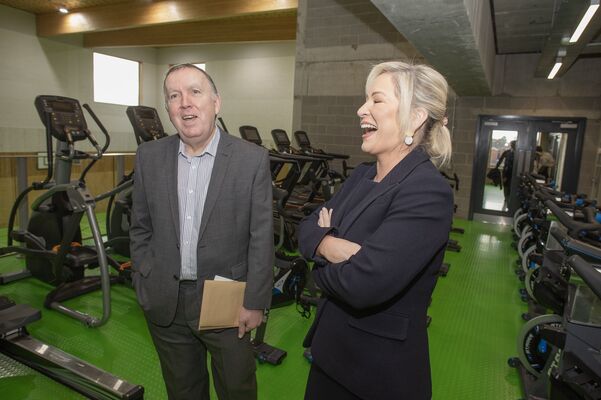
FIRST Minister Michelle O’Neill has told pupils in West Belfast that an Irish language anti-racism week will “make a real and lasting difference". Ms O’Neill was speaking at Spórtlann na hÉireann on the Falls Road at the launch of the programme for the Irish language-led anti-racism week, which takes place next month and celebrates the strength of cultural diversity. Pupils from Coláiste Feirste took part in the Fáilte 26 launch which brings together people of all backgrounds to share their cultures, sports, engage in discussion, and build the solidarity needed to overcome racism. Supported by the Community Relations Council, Belfast City Council, and United Against Racism, the packed programme of music, dance, debate and more will run from February 2-8.

SCHOOLS across Belfast have closed on Tuesday due to Storm Chandra. Overnight brought heavy rain and strong winds. There is an amber warning for wind on Tuesday from 5am until 9pm and a rain warning will come into effect at midnight, which could lead to flooding. Belfast City Council has also made the decision to close parks, playgrounds and pitches on Tuesday.
A BELFAST councillor is to bring forward a motion to City Hall calling for the installation of a permanent monument outside the Assembly Rooms in the city centre ahead of the arrival of Fleadh Cheoil na hÉireann in August.
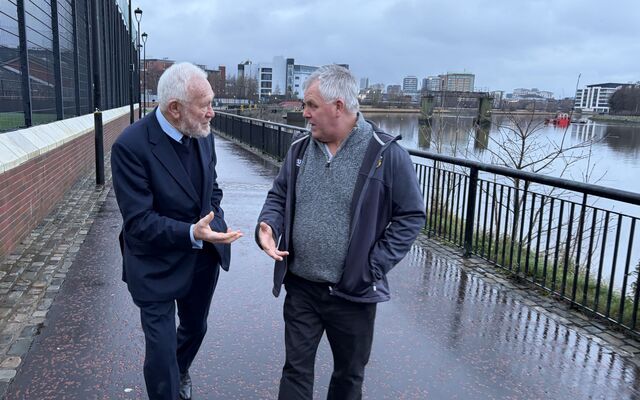
THE first person to sail around the world without stopping returned to the city of his grandmother this week to urge Belfast to host the Clipper Round the World Race in 2028.